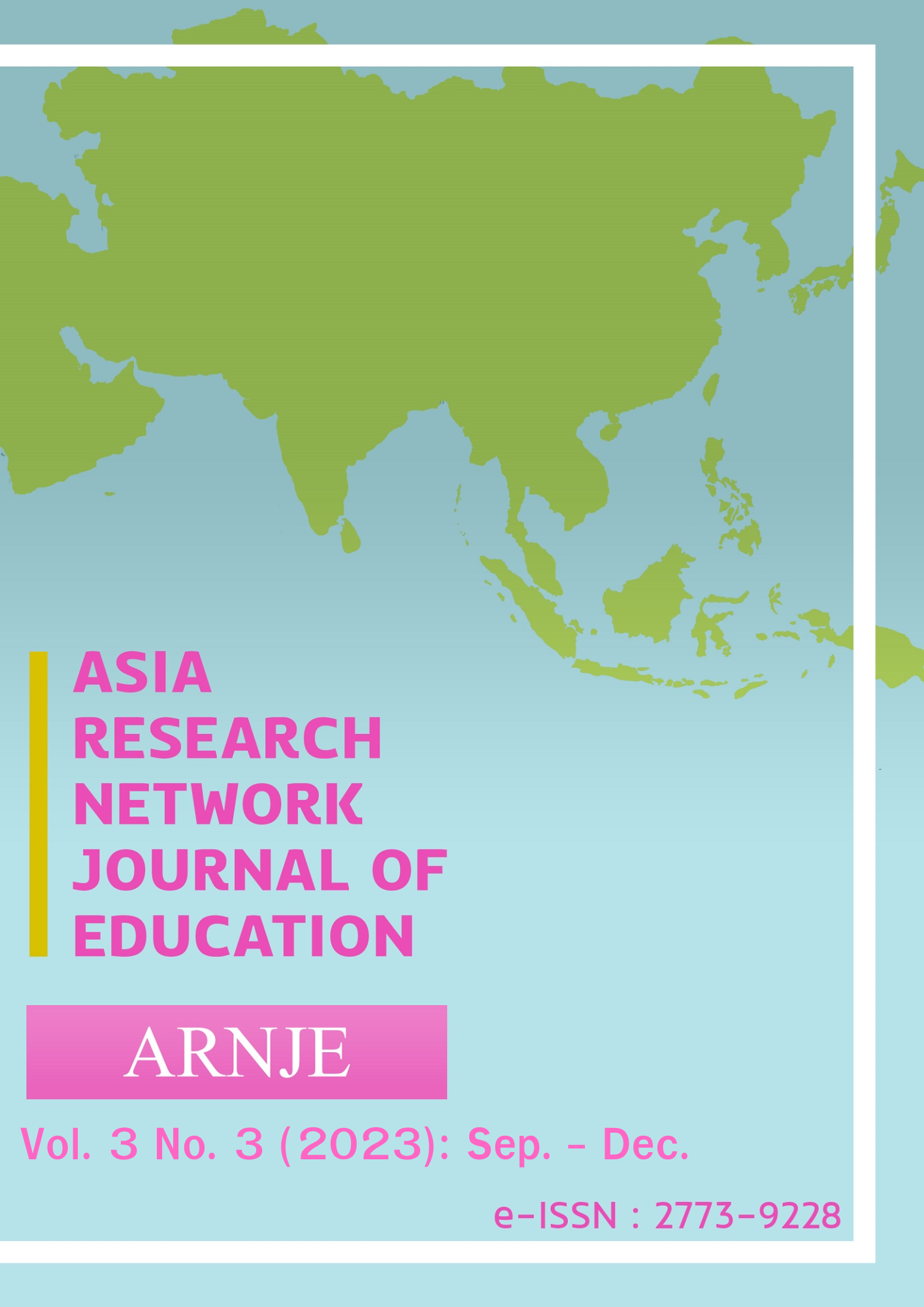Technological Pedagogical and Content Knowledge: Levels of Practice of Chemistry Teachers
Main Article Content
Abstract
The upsetting 88% of senior high school graduates in the Philippines having difficulty with general college chemistry is further exacerbated by the widely implemented modular distance learning in public schools. Teachers reported challenges on monitoring and validating student outputs as well as giving timely feedback. To assess the levels of practice of chemistry teachers in terms of content, pedagogy and technology was the impetus of this study. Engaging a descriptive-comparative design, an expert-validated rubric was used to cross-validate the COT-RPMS-rated levels of practice on technological, pedagogical and content knowledge (TPACK) among fourteen chemistry teachers in a public schools district in Kalibo, Aklan. The rubric adapted from Technology Proficiency Self-Assessment for the 21st Century (TPSA C21) by Christensen & Knezek (2015) and the department of education mandated pedagogies and chemistry curriculum standards. Intra-class correlation coefficients of 0.842 for content and 0.887 for pedagogy confirmed the concurrence between the scores given by the evaluators on the chemistry teachers’ instructional plans. The comparative analysis revealed lower levels of practice in all areas, with pedagogy having the lowest ratings using the rubric. The lecture method and whole class discussion of direct and interactive instruction strategies, respectively, were common among participants. Wilcoxon Signed Rank Tests confirmed significant differences in levels of practice of technological, pedagogical and content knowledge of teachers when COT-RPMS and the rubric ratings are equated against each other. An in-depth investigation on pedagogical levels of practice evident in instructional plans is strongly recommended.
Keywords: chemistry teachers; TPACK; Levels of Practice; Rubric,
Article Details

This work is licensed under a Creative Commons Attribution-NonCommercial-NoDerivatives 4.0 International License.
Copyright: CC BY-NC-ND 4.0
References
Antonio, V. V. (2018, August). Science laboratory interest and preferences of teacher education students: Implications to science teaching. Asia Pacific Journal of Multidisciplinary Research, 6(3), 57-67. Retrieved May 7, 2022, from www.apjmr.com/wp-content/uploads/2018/07/APJMR-2018.6.3.08a.pdf
Ary, Donald; Jacobs, Lucy Cheser; Sorensen, Chris;. (2010). Introduction to Research Education, 8th ed. Wadsworth, Cengage Learning.
Barber, M., & Mourshed, M. (2007). How the world's best performing education systems come out on top: A report. McKinsey & Company. Retrieved June 10, 2022, from https://www.mckinsey.com/~/media/mckinsey/industries/public%20and%20social%20sector/our%20insights/how%20the%20worlds%20best%20performing%20school%20systems%20come%20out%20on%20top/how_the_world_s_best-performing_school_systems_come_out_on_top.pdf
Business World. (2021). Philippines facing oversupply in IT graduates, STEM shortage. Manila: Business World. Retrieved May 29, 2022, from https://www.bworldonline.com/editors-picks/2021/02/26/346960/philippines-facing-oversupply-in-it-graduates-stem-shortage/
Cantrell, M. (2011). Demystifying the research process: Understanding a descriptive comparative research design. Pediatric Nursing, 37(4), 188-189. Retrieved June 13, 2022, from https://www.proquest.com/openview/ef559977720e1df10082783c9b9daa9f/1?pq-origsite=gscholar&cbl=47659
Cardellini , L. (2012). Chemistry: Why the subject is difficult? Educación Química, 23(2), 305-310. doi:0.1016/S0187-893X(17)30158-1
Castroverde, F., & Alcala, M. (2021, June). Modular distance learning modality: Challenges of teachers amid the Covid-19 pandemic. International Journal of Research Studies in Education, 10(8). doi:10.5861/ijrse.2021.602
Christensen, R., & Knezek, G. (2017). Validating the Technology Proficiency Self-Assessment Questionnaire for 21st Century Learning (TPSA C-21). Journal of Digital Learning in Teacher Education, 33(1), 20-21. Retrieved June 1, 2022, from https://eric.ed.gov/?id=EJ1123002
Cordon, J. M., & Polong, J. (2020). Behind the science literacy of Filipino students at Pisa 2018: A case study in the Philippines' educational system. Integrated Science Education Journal, 1(2), 70-76. doi:10.37251/isej.v1i2.59
Davis, A., & Maisano, P. (1982, March). From novice to expert. American Journal of Nursing, 82(3), 402-407. Retrieved June 8, 2022, from https://journals.lww.com/ajnonline/citation/1982/82030/from_novice_to_expert.4.aspx
Department of Education. (2021). DepEd Interim Guidelines on Giving of Awards and Recognition in Light of the Basic Education Learning Continuity Plan for School Year 2020-2021. Retrieved from DepEd.gov.ph.
Fuad, M., Deb, D., Etim, J., & Gloster , C. (2018). Mobile response system: a novel approach to interactive and hands-on activity in the classroom. Educational Technology Research and Development, 66, 493–514. Retrieved June 7, 2022, from https://link.springer.com/article/10.1007/s11423-018-9570-5
Johnson, A. M., Jacovina, M. E., Russel , D. G., & Sotto, C. M. (2016). Challenges and solutions when using technologies in the classroom. Taylor and Francis, 13-29. Retrieved June 4, 2022, from files.eric.ed.gov/fulltext/ED577147.pdf
Koehler, M. J., Mishra, P., & Yahya, K. (2009, November). Tracing the development of teacher knowledge in a design seminar: Integrating content, pedagogy and technology. Science Direct, 49(3), 740-762. doi:10.1016/j.compedu.2005.11.012
Koehler, M., & Mishra, P. (2009). What is technological pedagogical content knowledge (TPACK)? Contemporary issues in technology and teacher education. Society for Information Technology & Teacher Education, 9(1), 60-70. Retrieved April 5, 2022, from www.learntechlib.org/primary/p/29544/.
Lailatun, N., & Drajati, N. (2019). Investigating EFL teachers' perceptions on their TPACK development: How ELF teachers view seven domains on TPACK framework. LEKSIKA, 13(2). doi:Lailatun , N., & Drajati, N. (2019). Investigating EFL teachers‟ perceptions on their TPACK development: how EFL teachers view seven domains on the TPACK framework. LEKSIKA, 13(2). doi:10.30595/lks.v13i2.5649
Mongcal, Y. C., Lee-Chua, Q. N., & Guidote, A. M. (2017). Assessing the in-service teachers' chemistry content knowledge and self-efficacy in teaching the K to 12 science curriculum. KIMIKA, 28(2), 13-21. doi:10.26534/kimika.v28i2.13-21
Pandit, D., & Agrawal, S. (2021, January 29). Exploring challenges on online education in COVID times. Sage Publications. Retrieved January 6, 2022, from 10.1177/2319714520986254
Pokhrel, S., & Chhetri, R. (2021, January 19). A literature review on impact of COVID-19 pandemic on teaching and learning. Sage Journals, 8(1), 133-141. doi:10.1177/2347631120983481
Sawchuk, S. (2013). Teacher evaluation: An issue overview. Education Week. Retrieved June 5, 2022, from https://www.edweek.org/teaching-learning/teacher-evaluation-an-issue-overview/2015/09
Schmidt, D. A., Baran, E., Thompson, A. D., Mishra, P., Koehler, M. J., & Shin, T. S. (2009). Technological Pedagogical Content Knowledge (TPACK): The development and validation of an assessment for pre-service teachers. Journal of Research on Technology in Education, 42(2), 123-149. Retrieved from files.eric.ed.gov/fulltext/EJ868626.pdf
SEI-DOST & UP NISMED. (2011). Framework for Philippine science teacher education. Manila. Retrieved from sei.dost.gov.ph/images/downloads/publ/sei_sciteach.pdf
UNICEF. (2021). Filipino children continue missing education opportunities in another year of closure. Manila: UNICEF Philippines. Retrieved April 5, 2022, from www.unicef.org/philippines/press-releases/filipino-children-continue-missing-education-opportunities-another-year-school
UP NISMED. (2019). Senior high school students' readiness to learn college chemistry. Retrieved January 4, 2022, from nismed.upd.edu.ph/research/


